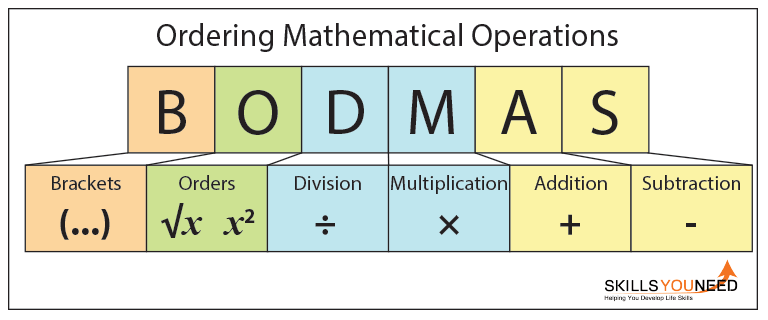The
self-storage industry has experienced remarkable growth over the past decade,
transforming from a niche market into a billion-dollar sector that continues to
expand. Whether you are looking at established markets like secure self storage in Campbelltown or exploring opportunities in emerging areas,
starting your own self-storage business can be both financially rewarding and
personally fulfilling. This comprehensive guide will walk you through the
essential steps to launch your venture successfully, from initial market
research to grand opening day.
Understanding
the Self Storage Market Landscape
The
self-storage industry thrives on consistent demand driven by life transitions,
business needs, and space constraints in modern living. People downsize homes,
relocate for work, start businesses from home, or simply accumulate belongings
that exceed their available space. This creates a steady stream of potential
customers who need temporary or long-term storage solutions.
Market
research forms the foundation of any successful self-storage venture. Begin by
analysing your target area's demographics, population density, and economic
indicators. Areas experiencing growth, new housing developments, or business
expansion typically present excellent opportunities. Study existing competitors
thoroughly, examining their pricing structures, facility conditions, and
customer service approaches. This research will help you identify gaps in the
market and position your business advantageously.
Location
selection represents perhaps the most critical decision you will make. The old
real estate adage "location, location, location" applies doubly to
self-storage facilities. Ideal locations combine high visibility from major
roads with convenient access for customers loading and unloading their
belongings. Consider proximity to residential areas, business districts, and
universities, as these generate consistent demand. Areas like Campbelltown,
with its mix of residential and commercial development, exemplify markets where
both individual and business storage needs converge.
Financial
Planning and Investment Considerations
Self-storage
businesses require significant upfront capital, but they also offer attractive
returns once established. Development costs vary dramatically based on
location, facility size, and construction type. A modest facility might require
several hundred thousand dollars, while larger developments can demand millions
in initial investment.
Create
detailed financial projections that account for land acquisition or lease
costs, construction expenses, permits and licensing fees, insurance, and
working capital for the first year of operations. Do not underestimate soft
costs such as architectural plans, engineering studies, environmental
assessments, and legal fees. These can add substantially to your budget but are
essential for a professional operation.
Consider
various financing options including traditional bank loans, SBA lending
programs, private investors, or partnerships with established operators. Many
successful self-storage entrepreneurs start with smaller facilities and
reinvest profits into expansion, building their portfolios gradually over time.
Legal
Requirements and Regulatory Compliance
Navigating
the regulatory landscape requires careful attention to local zoning laws,
building codes, and business licensing requirements. Self-storage facilities
typically require commercial or industrial zoning, and some areas have specific
regulations governing storage facility operations.
Obtain
necessary permits before beginning construction, including building permits,
fire department approvals, and any environmental clearances. Work with
experienced attorneys who understand self-storage law to draft customer rental
agreements, establish lien procedures, and ensure compliance with state
regulations regarding abandoned property and auction processes.
Insurance
needs for self-storage facilities are unique and comprehensive. Property
insurance, general liability coverage, garage keeper's liability, and tenant
protection insurance all play important roles in protecting your investment and
customers' interests.
Facility
Design and Construction
Modern
self-storage customers expect clean, secure, and easily accessible facilities.
Design your facility with customer convenience in mind, incorporating wide
drive aisles, good lighting, and clear signage throughout. Climate-controlled
units command premium rents and attract customers storing sensitive items like
electronics, documents, or furniture.
Security
systems are paramount in today's market. Invest in comprehensive surveillance
systems, electronic gate access, individual unit alarms, and adequate perimeter
lighting. Customers choosing storage facilities prioritise security above most
other factors, making this investment essential for competitive positioning.
Consider
offering various unit sizes to accommodate different customer needs, from small
lockers for document storage to large units suitable for vehicle storage.
Mixed-size facilities typically achieve better occupancy rates and revenue
optimisation than those focusing on single unit types.
Technology
Integration and Management Systems
Modern
self-storage operations rely heavily on technology for efficiency and customer
satisfaction. Property management software streamlines operations by handling
reservations, payments, access control, and customer communications from a
centralised platform. Many systems offer customer portals where renters can pay
bills, update information, and manage their accounts independently.
Automated
access systems reduce staffing needs while providing customers with convenient
24/7 facility access. These systems integrate with management software to
ensure only current tenants can enter and track facility usage patterns.
Online
presence is crucial for attracting customers in today's digital marketplace.
Develop a professional website with online rental capabilities, virtual tours,
and clear pricing information. Most customers research storage options online
before visiting facilities, making your digital presence a critical component
of your marketing strategy.
Marketing
and Customer Acquisition
Successful
self-storage marketing combines traditional and digital strategies to reach
diverse customer segments. Local advertising through newspapers, radio, and
community publications helps establish your facility within the neighbourhood.
However, online marketing increasingly drives customer acquisition,
particularly search engine optimisation and pay-per-click advertising.
Develop
relationships with local businesses that frequently need storage solutions.
Real estate agents, contractors, and moving companies can become valuable
referral sources when they understand your services and competitive advantages.
Consider offering commercial storage in Ingleburn or similar
business-focused services to capture this market segment.
Pricing
strategy requires careful balance between competitiveness and profitability.
Research local market rates thoroughly, but remember that customers often
prioritise security, cleanliness, and convenience over the lowest price.
Promotional pricing for first-time customers can drive initial occupancy, but
ensure your long-term rates support sustainable operations.
Operational
Excellence and Customer Service
Outstanding
customer service differentiates successful self-storage facilities from
mediocre competitors. Train staff to be helpful, knowledgeable, and
professional in all customer interactions. Many facilities operate with minimal
staffing, so each employee interaction significantly impacts customer
perception.
Maintain
your facility meticulously, as cleanliness and organisation directly influence
customer satisfaction and retention. Regular maintenance, prompt repairs, and
attention to landscaping create positive impressions that justify premium
pricing and generate referrals.
Implement
efficient operational procedures for move-ins, rent collection, and handling
delinquent accounts. Consistent processes reduce errors, improve customer
experience, and help maintain healthy cash flow essential for business success.
Building
Long-Term Success
The
self-storage industry rewards operators who focus on long-term relationship
building with customers and communities. Many successful facilities become
integral parts of their neighbourhoods, supporting local events and maintaining
high standards that enhance area property values.
Consider
expansion opportunities once your initial facility achieves stable occupancy
and cash flow. Some operators develop multiple facilities in growing markets,
while others focus on optimising single locations through additional services
like affordable self storage in Campbelltown options or specialised
storage solutions.
Value-added
services can increase revenue and customer satisfaction simultaneously. Truck
rentals, moving supplies, insurance programs, and package acceptance services
provide convenience for customers while generating additional income streams.
Final
Thoughts
Starting
a self-storage business requires substantial planning, investment, and
dedication, but it offers the potential for strong returns and long-term wealth
building. Success depends on thorough market research, strategic location
selection, adequate capitalisation, and unwavering commitment to customer
service excellence.
The
key lies in understanding that you are not just renting storage units in Campbelltown or any other location ? you are providing solutions to people
during important life transitions. Whether helping families during moves,
supporting small businesses with inventory storage, or providing peace of mind
during difficult times, your facility serves an essential community function.
With
careful planning, professional execution, and focus on customer needs, your
self-storage business can become a valuable asset that serves your community
while building long-term wealth. The industry's continued growth and
recession-resistant characteristics make it an attractive option for
entrepreneurs seeking stable, profitable business opportunities in the modern
economy.












